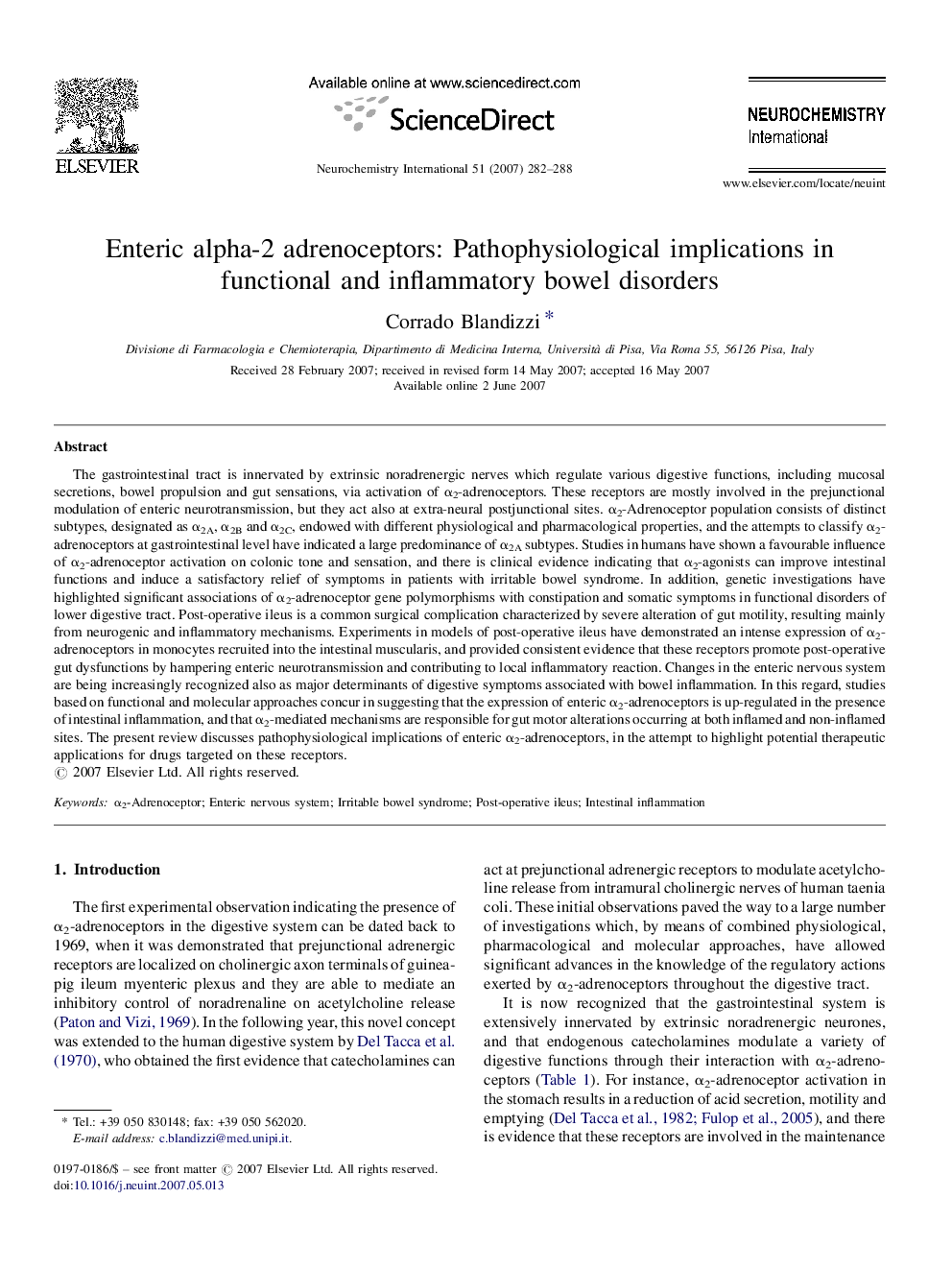| Article ID | Journal | Published Year | Pages | File Type |
|---|---|---|---|---|
| 2201886 | Neurochemistry International | 2007 | 7 Pages |
The gastrointestinal tract is innervated by extrinsic noradrenergic nerves which regulate various digestive functions, including mucosal secretions, bowel propulsion and gut sensations, via activation of α2-adrenoceptors. These receptors are mostly involved in the prejunctional modulation of enteric neurotransmission, but they act also at extra-neural postjunctional sites. α2-Adrenoceptor population consists of distinct subtypes, designated as α2A, α2B and α2C, endowed with different physiological and pharmacological properties, and the attempts to classify α2-adrenoceptors at gastrointestinal level have indicated a large predominance of α2A subtypes. Studies in humans have shown a favourable influence of α2-adrenoceptor activation on colonic tone and sensation, and there is clinical evidence indicating that α2-agonists can improve intestinal functions and induce a satisfactory relief of symptoms in patients with irritable bowel syndrome. In addition, genetic investigations have highlighted significant associations of α2-adrenoceptor gene polymorphisms with constipation and somatic symptoms in functional disorders of lower digestive tract. Post-operative ileus is a common surgical complication characterized by severe alteration of gut motility, resulting mainly from neurogenic and inflammatory mechanisms. Experiments in models of post-operative ileus have demonstrated an intense expression of α2-adrenoceptors in monocytes recruited into the intestinal muscularis, and provided consistent evidence that these receptors promote post-operative gut dysfunctions by hampering enteric neurotransmission and contributing to local inflammatory reaction. Changes in the enteric nervous system are being increasingly recognized also as major determinants of digestive symptoms associated with bowel inflammation. In this regard, studies based on functional and molecular approaches concur in suggesting that the expression of enteric α2-adrenoceptors is up-regulated in the presence of intestinal inflammation, and that α2-mediated mechanisms are responsible for gut motor alterations occurring at both inflamed and non-inflamed sites. The present review discusses pathophysiological implications of enteric α2-adrenoceptors, in the attempt to highlight potential therapeutic applications for drugs targeted on these receptors.
